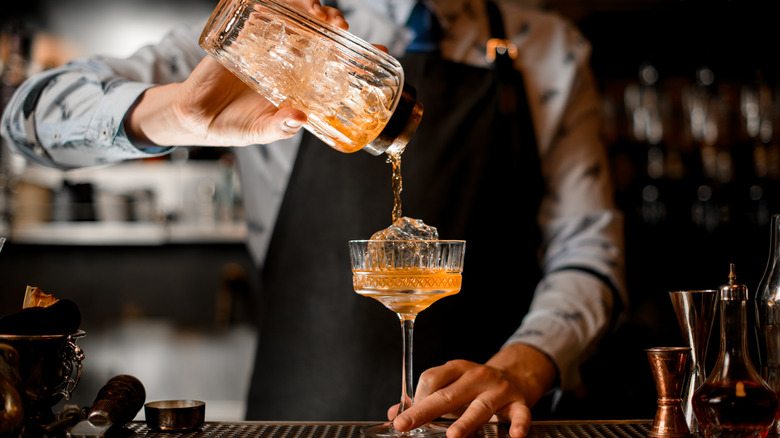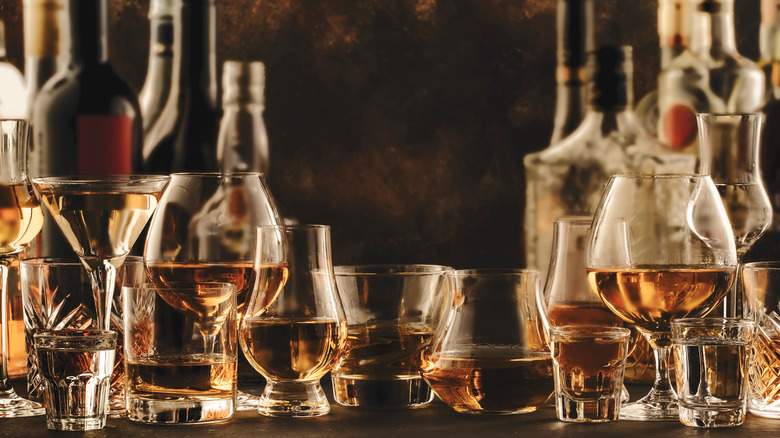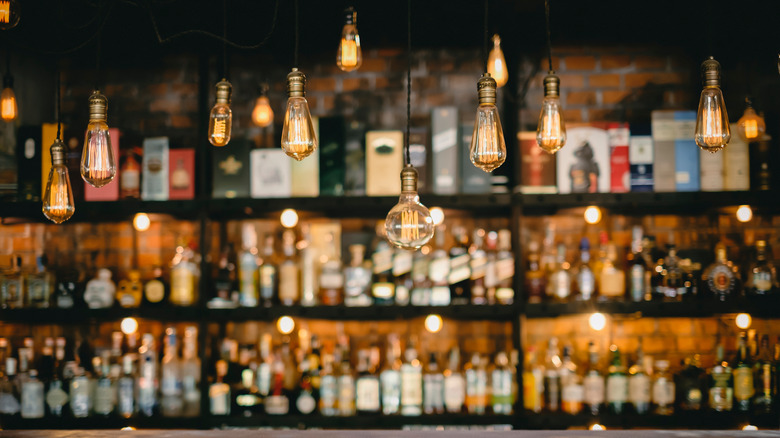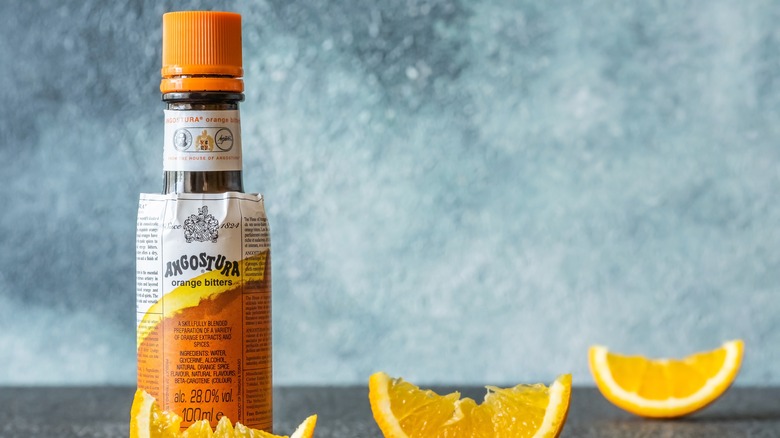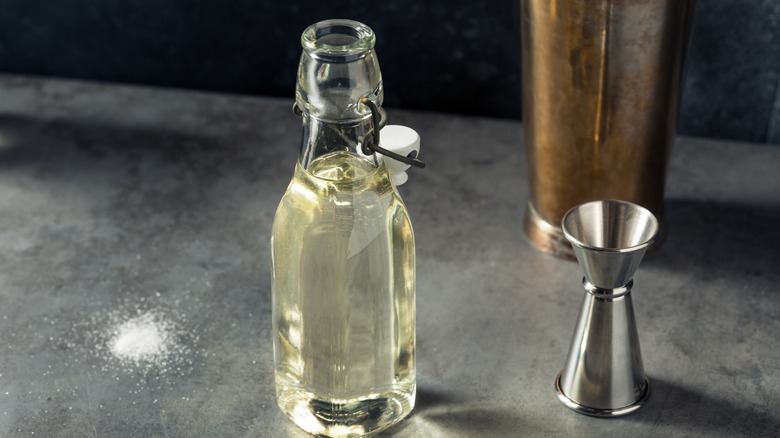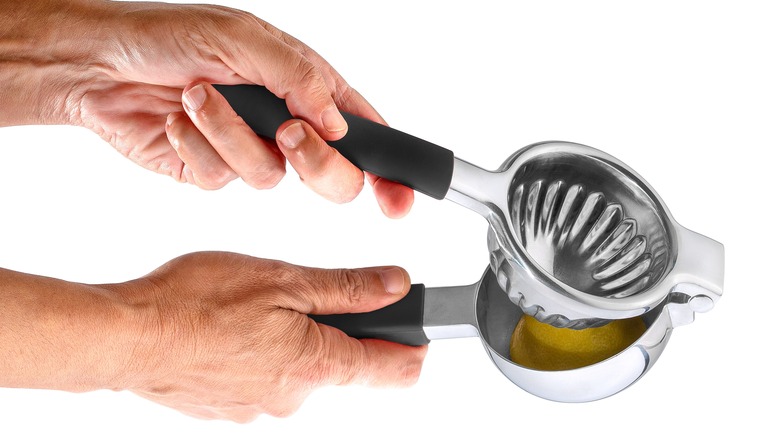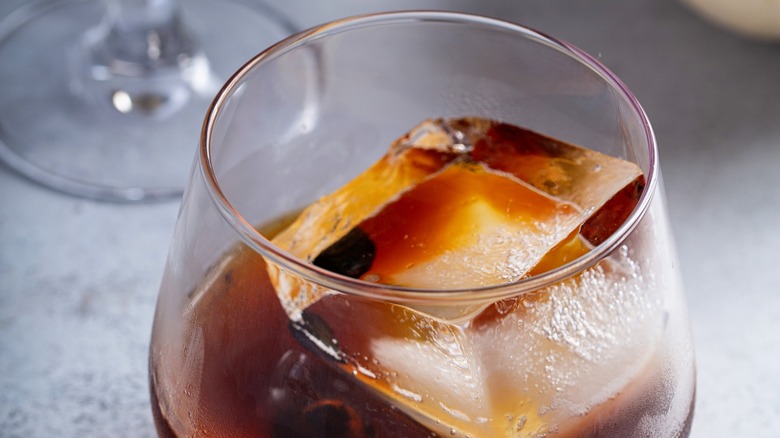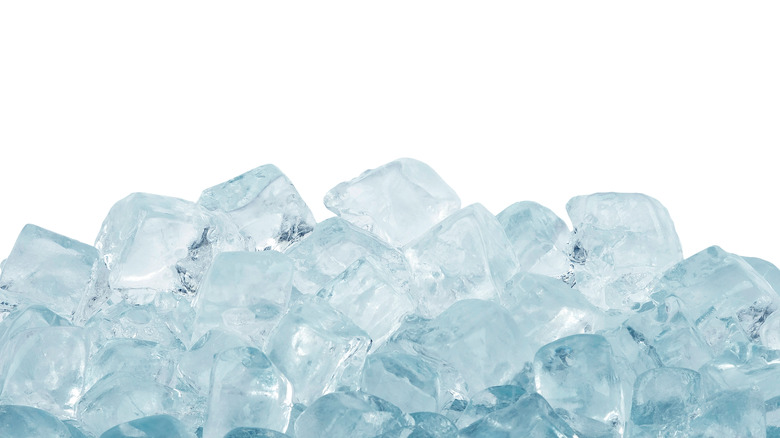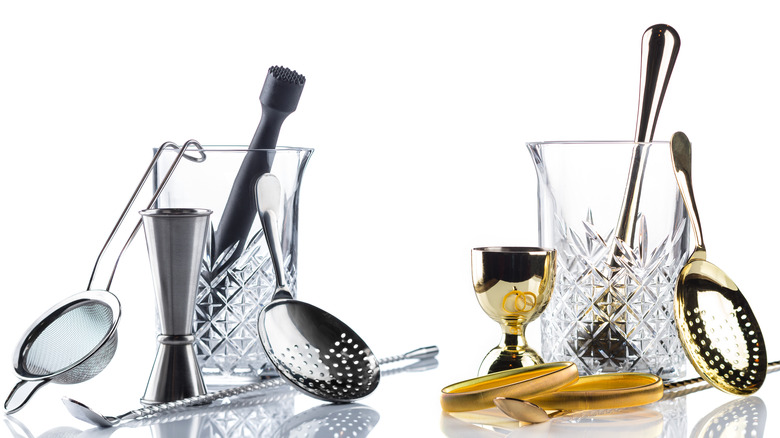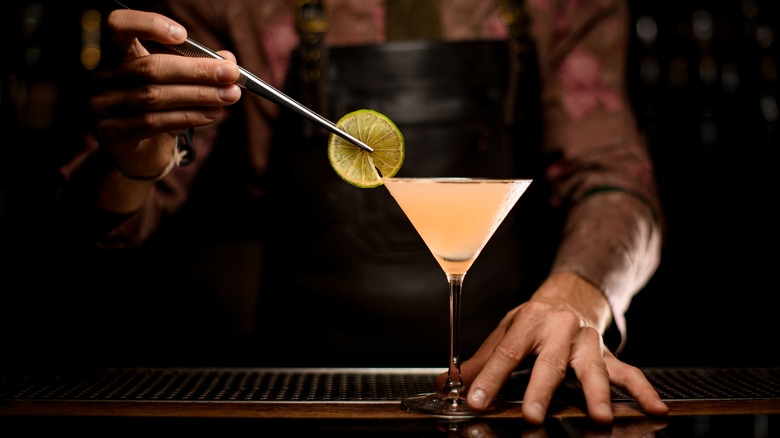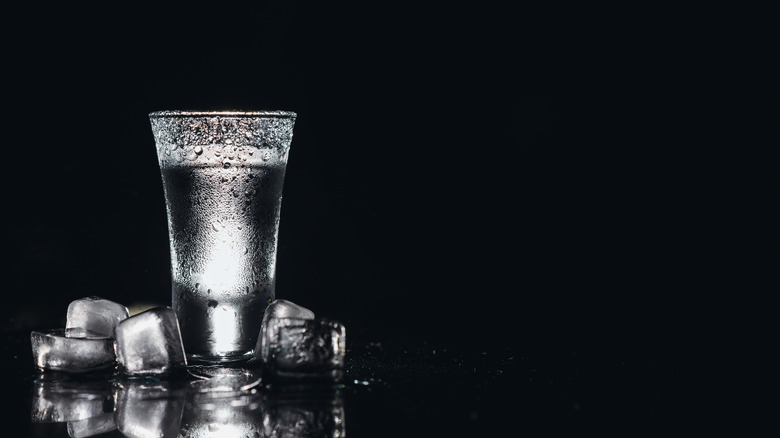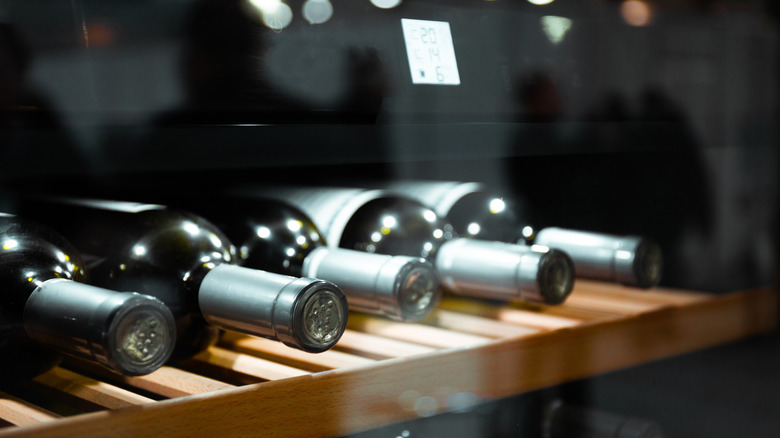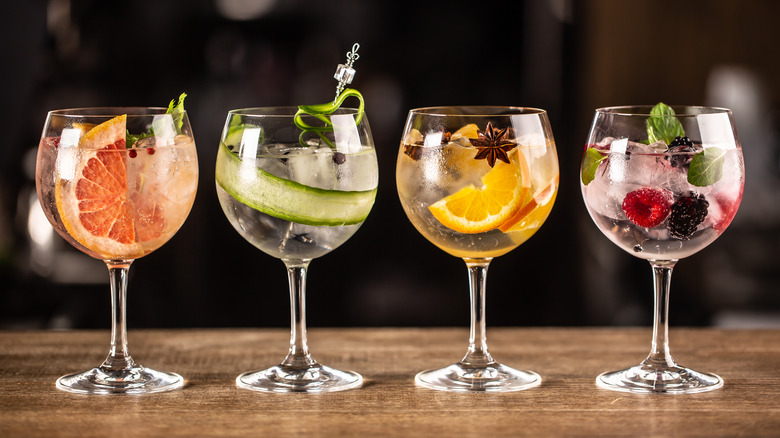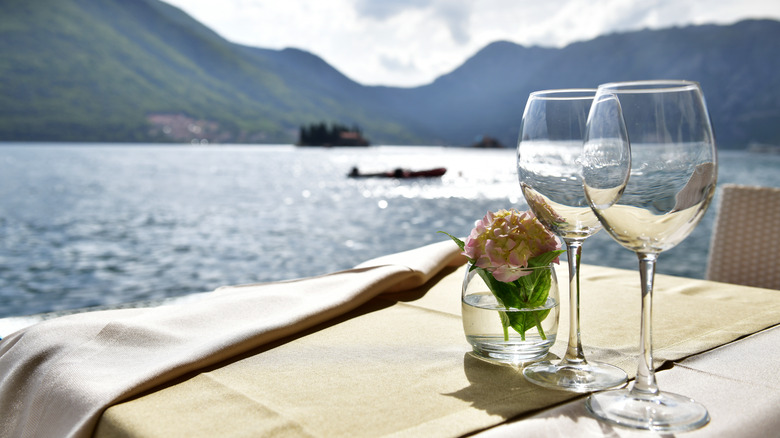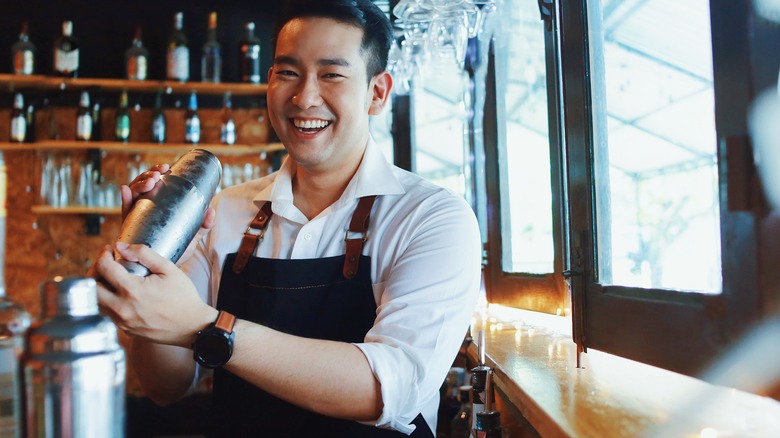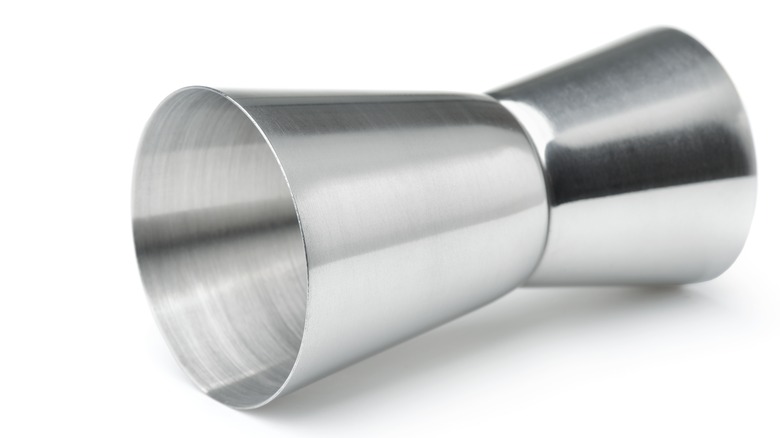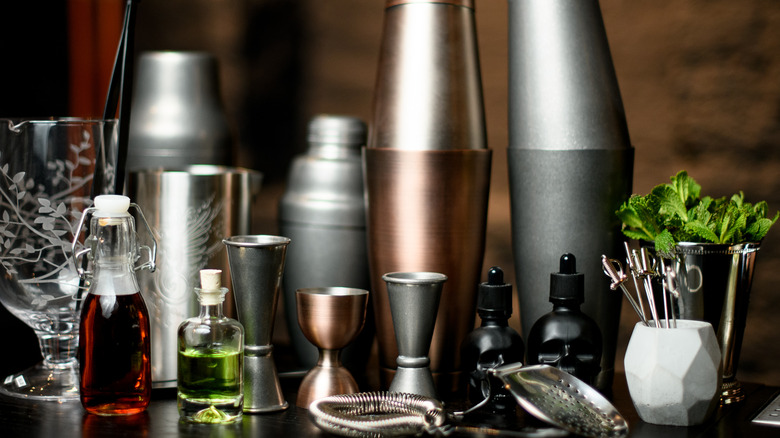16 Ways Cocktails Taste Better At A Bar Than What You Make At Home
If you assume that the sheer act of paying $15 to $20 for a cocktail at a bar is the only thing that makes it taste better than something you could whip up at home, think again. Although there might be something to be said for the placebo effect when it comes to paying steep prices for a stiff drink, there are actually a plethora of ways bars justify their prices — and make cocktails taste better than what you'd make at home.
Whether it's relying on bartenders' expertise, stocking the best ingredients, or using the perfect ice cubes, there are some aspects of drinking at a bar that even the most dedicated home mixologist would be hard-pressed to replicate. So, the next time you're wondering why your favorite cocktail bar's negroni tastes so much better than yours, take comfort in knowing that it probably has nothing to do with you. Read on to learn why cocktails just taste better at a bar.
Better booze
Unless you have a seriously stocked liquor cabinet at home, most bars simply have access to better booze. Sure, that bottle of cheap whiskey that's been collecting dust on your bar cart will get the job done if you want to make an at-home old fashioned. However, it's likely not going to be the same as the good stuff you'd pay for at a cocktail bar (especially in a spirit-forward beverage).
Liquor is sold at a wide range of price points. And yes, there are expensive brands that cost a pretty penny primarily because of their packaging and marketing, just like there are cheap brands that are genuinely delicious. While the average consumer might have trouble making the distinction, bars know what they're doing. You can rest assured that if you're imbibing at a reputable establishment, they'll pick the best spirit for your beverage. Trust us, your cocktail is always going to taste better when it's built on a solid (boozy) foundation.
Wider selection
When it comes to liquor, quality is important — but so is quantity. As much as we love simple cocktails that rely on two or three standout ingredients, most people (ourselves included) have a soft spot for complex concoctions that contain a lengthy list of ingredients. However, unless you want to sacrifice some serious cash (and cabinet space) for the sake of a drink, it's usually not feasible to make cocktails that require a lot of ingredients at home.
Cocktail bars have the ability to add even just a quarter ounce of a specific liqueur or modifier to a cocktail because a good bar will stock everything from imported amaro, to local spirits, to flavored liquors. They have volume on their side, so they can afford to shell out for specialty items that wouldn't be practical for at-home use. Having access to a wide selection of spirits is a game changer, since even the tiniest splash of a flavorful ingredient can completely alter a cocktail for the better.
Better bitters
If you're ever at a loss for what to talk about with a bartender, try asking them about their favorite bitters. You might find yourself listening for a while! If you're wondering what bitters are and how you use them, it's best to think about them as the key ingredients that take cocktails from mediocre to delicious. These concentrated elixirs made with an assortment of botanicals add complexity, flavor, and balance to beverages in just a few dashes.
Angostura bitters are what usually come to mind when people think about these cocktail powerhouses, and you can find this popular variety at almost every liquor store. Crucial as they may be, the world of bitters goes far beyond basic "ango" (as bartenders like to call them) to include bitters in almost any flavor you can imagine. Most bars stock at least a few varieties, and they work to add that professional edge to all kinds of cocktails.
Fresh syrups
You've probably seen little squeeze bottles of pre-made simple syrup in the mixer aisle of your local liquor store — and we won't deny that we see the appeal. Now that we've fessed up, we're here to tell you that using fresh syrup is crucial when it comes to making a delicious cocktail. Bars make simple syrup by the gallon (seriously) and it's a small detail that matters more than you may realize.
Plus, most bars go far beyond just using plain syrup. Infusions and flavorings can take simple syrup from basic to brilliant and open up a world of beverage possibilities. A run-of-the-mill Tom Collins can become an herbaceous specialty drink with the addition of rosemary syrup. A classic old fashioned can be transformed into a rich, dessert-like treat by subbing in gingerbread syrup for the plain stuff. The options are endless, but the bottom line is that fresh syrups make drinks taste better.
Fresh juice
If we had to pick two words to sum up why cocktails taste better at a bar, here's what they'd be: fresh juice. If you want a quaffable cocktail, using fresh juice is non-negotiable. Store-bought juice doesn't hold a candle to the just-squeezed stuff, and we promise it's not worth the convenience.
Lemon and lime juice in particular are the bread and butter of mixology. Sure, it's tedious and annoying to squeeze limes for a margarita or lemons for a whiskey sour. That said, if you're wondering why your homemade marg just isn't hitting the spot — and you're using lime juice from a bottle or a pre-made mix — you've found your answer.
Bars understand the importance of using fresh juice. They also have the time, equipment, and motivation to make sure they have some on hand. So, the next time you're debating whether buying a pricey drink at a bar is worth it, you should ask yourself if you're in the mood to juice before you settle on taking the homemade route.
Bigger ice
You've probably seen drinks at a bar that are served with one large ice cube. If you think a big cube is just for aesthetics (or a ploy to make your drink more expensive), we're here to tell you otherwise. There's actually a whole lot of science behind something as seemingly simple as ice.
Here's the thing about frozen water — it melts. Some dilution can actually be a good thing. It helps open up the more nuanced flavor notes in liquor and can soften the signature burn of booze. Too much dilution, on the other hand, will just make your drink taste watery and unbalanced. We're here to reveal that the trick for preventing ice from melting too quickly in your cocktail is using a larger the large cube.
Bars that serve spirit-forward cocktails with big cubes are working to preserve the flavor and integrity of your drink. Larger cubes have less overall surface area, which means they will keep your drink cold while melting less quickly. This way, you can enjoy your entire beverage without racing against the clock.
Smaller ice
While some cocktails are meant to be strong and spirit-forward, others are intended to have a slushy-like consistency. Mint juleps, rum swizzles, cobblers, Moscow mules, and various tiki drinks are just a few examples. These types of drinks get their thirst-quenching, heat-busting, refreshing power from ice — small ice, to be specific.
Crushed ice, along with its more difficult-to-produce cousin, nugget ice, can completely change the flavor, viscosity, and overall quality of certain cocktails. The different types of ice to use in cocktails also boils down (or, more accurately, melts down) to how much dilution is needed in a beverage. Drinks that rely on crushed ice need a little extra water to keep them easy drinking, and they won't taste as good if you use cubes from the ice tray in the freezer. Of course, you can always make your own crushed ice, or even purchase a pricey nugget ice maker, but sometimes it's easier to just sidle up to the bar.
Proper equipment
There are plenty of creative ways to shake or stir up a cocktail. While we admit that you can, in fact, make a cosmo in the same shaker you use to make your protein shakes or in a tupperware container (we've all been there), the truth is that the results will never be bar-quality.
Just like chefs take pride in their knives, bartenders are meticulous about the tools they use to make drinks. Shakers, mixing glasses, bar spoons, jiggers, and strainers are all in every good bar's arsenal for a reason — they make a big difference when it comes to making an expertly crafted cocktail.
So, while we won't judge you for using the disposable chopsticks that came with your takeout order to stir your negroni, we will encourage you to invest in a few bar tools if you enjoy making beverages at home. We guarantee you'll feel more like a pro when you aren't using a pasta colander to strain your creations.
Proper glassware
We can't argue with the fact that everything from a red Solo cup to a coffee mug will get the job done if you're just looking for something to hold your beverage. That said, glassware matters when it comes to enjoying a cocktail to its highest potential, and bars know exactly which glasses are best suited for specific drinks.
There are reasons why martinis are served in glasses with stems, old fashioneds are served in rocks glasses, French 75s are served in coupes, and so on. Glassware selection has way more to do with keeping drinks at the correct temperature, opening up aromas, and accommodating the right type of ice than you may realize. Those fancy martini glasses they use at your favorite cocktail bar aren't selected just to make you feel sophisticated (although they do that, too), but rather to ensure you're able to experience your martini as it was intended.
Chilled glassware
Temperature can separate a good cocktail from a great one. Professional bartenders aren't going to let the effort they've put into crafting a delicious drink be compromised by a warm glass — which is why cocktail bars often chill their glassware.
To understand this, you need to think back to what you learned about thermodynamics in your high school science class. If you put an ice-cold beverage in a room-temperature glass, the heat is going to transfer from the warmer item to the colder one, which will result in a sub-par cocktail.
Some cocktail bars have freezers that are dedicated to storing glasses, and others chill their glasses individually by adding ice and water to the glass before it's used. Either way, using chilled glassware is an important way bars separate their cocktails from the kind you'd make at home. Thankfully, this one's a tip you can easily use the next time you make yourself a drink.
Proper storage
Just like the temperature of your finished cocktail matters in terms of quality, so do the temperatures of the individual ingredients that go into a drink. Bars are able to store ingredients properly because not only do they have the physical space to do so, but they also have the knowledge and understanding of how each item should be stored.
An example of this is that you'll find that good cocktail bars always store their vermouths in the fridge. Vermouth is a type of fortified wine, and unlike distilled spirits, it needs to be kept cold to stay fresh. This isn't necessarily common knowledge, so don't feel bad if your bottle of vermouth is on the bar cart as we speak. It might seem trivial, but using vermouth that hasn't been kept in the fridge can negatively impact the final flavor of your martini or other vermouth-heavy beverage. Bars also go through ingredients quickly, so unless you're doing some serious at-home bartending, items won't sit around for as long as they might in your liquor cabinet.
An assortment of garnishes
Some garnishes add more than just a visual element to a cocktail. When you order a drink at a bar, it will often come complete with a garnish that adds to the beverage's overall quality. Some add additional flavor, acidity, oils, or aromas that help make a drink taste balanced and well-rounded.
The best example of this is when you order a drink that's served with a twist, (which is cocktail-speak for a piece of citrus peel). Usually, twists are "expressed" over a cocktail before they're used as a garnish. This means that the twist is squeezed peel-side down over the cocktail to release the citrus oils found in the rind onto the top of the drink. Doing so adds an extra layer of citrus flavor to cocktails like negronis, old fashions, and martinis.
Garnishes like olives or pickled onions add a savory, salty edge to spirit-forward cocktails, while other options like Luxardo cherries can add necessary sweetness. If a drink is served with a lemon or lime wedge, it gives the person who's drinking it the option to ramp up the cocktail's acidity. Plus, in our opinion, drinks taste better when they're pretty, too.
The setting adds to the enjoyment
There's more to enjoying a nice cocktail than just the physical drink. Of course, cocktail bars work hard to ensure your beverage is as tasty as it can be, but they also put a lot of effort into curating an ideal setting in which guests can enjoy their libations. Decor, lighting, color scheme, and overall ambiance can all impact how you feel as you sip on your beverage.
Generally speaking, it's a lot easier to savor your drink when you're seated in a comfy bar stool with smooth jazz playing in the background than it is at your work-from-home kitchen table with your roommate watching bad reality TV in the background. People drink and dine out just as much for the experience (and sometimes, escape), as they do for the food and beverages they consume.
Bars often stand out because of the specific niche they carve out for themselves. There's nothing like a cozy bar in the winter, a beach bar on vacation, or a dimly lit bar for a romantic date.
Professional expertise
This one is somewhat obvious, but it's important to remember that bartenders are experts at their craft. Just like a trained chef can make even a simple dish taste amazing, bartenders can elevate basic cocktails to professional quality. Not only do bartenders have a slew of tips and tricks up their sleeves to make cocktails that are worth the money, but they are also great at working with guests to make their experience at the bar as memorable as possible.
If you don't know what you want, or you want to expand your drinking repertoire, a bartender is going to be your most valuable resource (just make sure they're not slammed when you want to chat). They can help steer you towards a drink you may not have tried before based on your preferences, or show you how spectacular your go-to favorite can be when it's made with care and precision.
Precise measurements
Other than scientists, bartenders may be the only people who use the term "meniscus" in their everyday lives. Exact measurements are crucial to nailing drinks that only contain a few ingredients and rely on calculated ratios. Even when you see bartenders pouring straight from the bottle with a speed pourer, we can assure they have practiced until they're able to accurately pour measurements down to the quarter ounce.
If you're measuring with that shot glass you got as a souvenir on last year's vacation, it's better than nothing, but don't expect your cocktails to taste the same as they do at a bar. A "shot" of liquor can mean different things. There can be a full ounce of difference from one shot glass to another (and sometimes more, although at that point you're looking at a double). Volume is incredibly deceiving, and the only way to know how much liquid you're pouring is to use a jigger or a measuring cup.
Efficient set up
At any good cocktail establishment, the bartenders set themselves up for success — literally. Just like in fine dining kitchens where chefs set up their mise en place, bartenders spend a good deal of their shifts prepping the bar to ensure the drink-making process is as efficient as possible. Not only does the right setup allow bartenders to serve more patrons more quickly, but it also protects the quality of the drinks themselves.
If a bartender makes a drink, pours it on ice, and then has to spend five minutes searching for the correct garnish, the guest is going to be handed a beverage that's watery and diluted. Trust us, professional bartenders go to great lengths to prevent this from happening, but it's a process most people don't go through when they're making a drink at home.
Whether you're making drinks for a crowd or a single cocktail for one, it's important to make sure you have everything you need — including ingredients, ice, and garnishes — before you begin. Your drinks will turn out much better if you think ahead.
